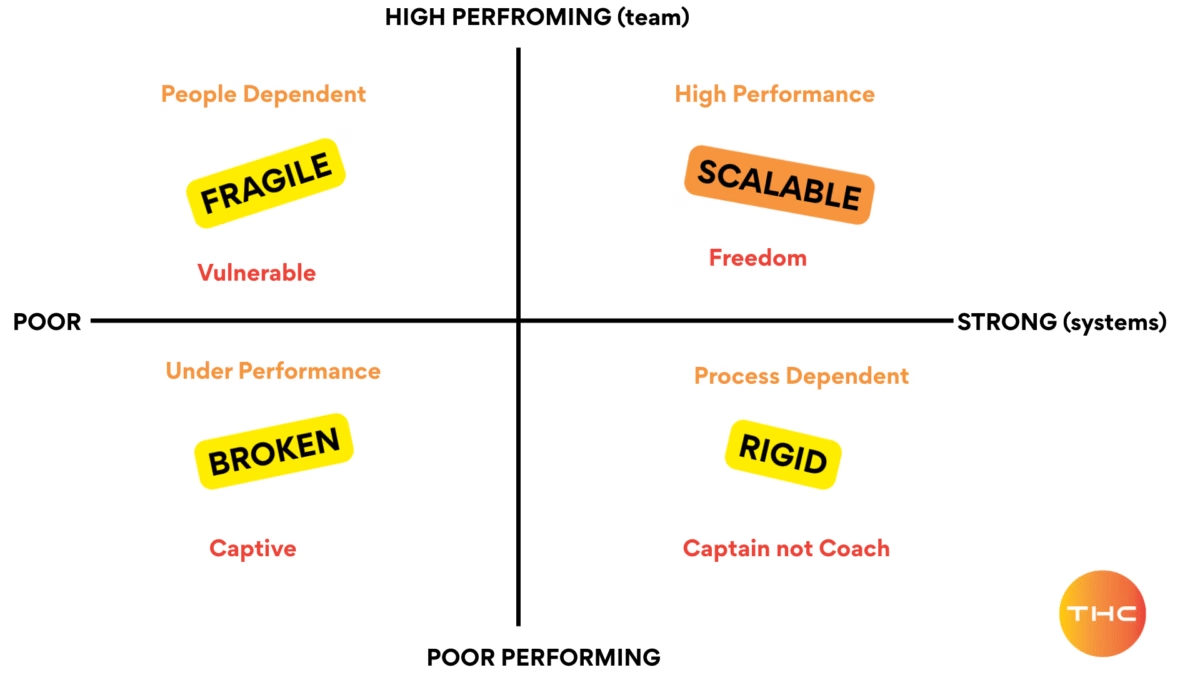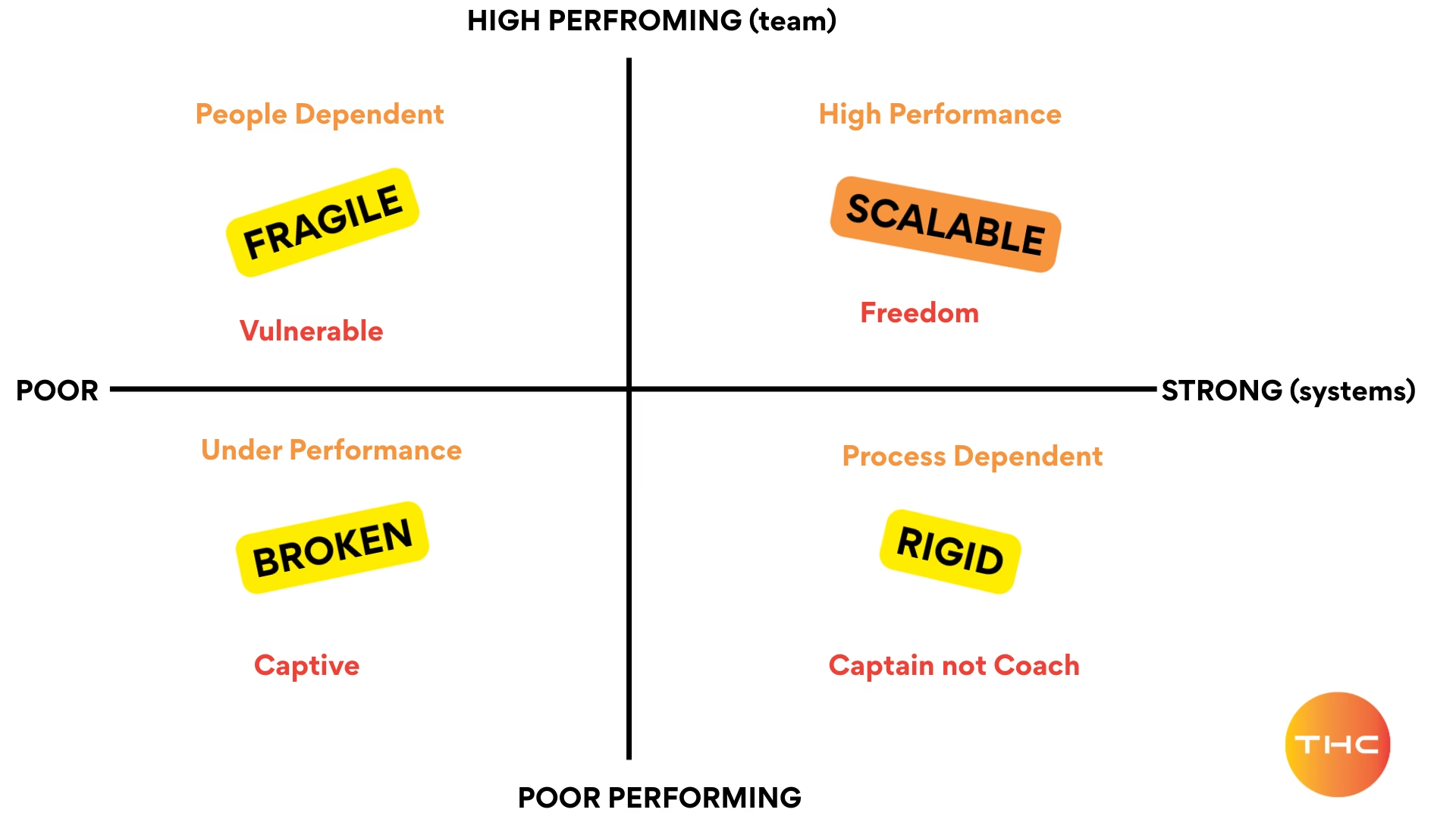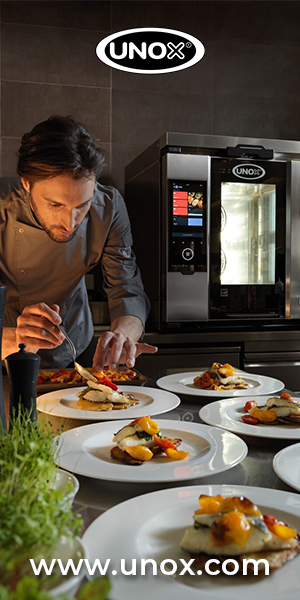A worrying statistic emerged from a recent industry presentation – 95% of restaurant managers don’t understand their most critical responsibility. According to James O’Connell, founder of The Hospitality Company and veteran hospitality consultant with more than two decades of experience, this knowledge gap is quietly eating away at restaurants across the industry.
“I can tell you that 95% of managers that I have met, worked with, presented to or spoken to do not know how important their role is in systemisation,” O’Connell told attendees at the recent Fine Food event, sharing insights from his work with thousands of hospitality businesses.
The revelation points to a fundamental misunderstanding of what separates successful restaurants from those that struggle or fail entirely. While owners often focus on perfecting their lasagna recipe or expanding their cocktail menu, O’Connell argues they’re missing the real driver of success: systematic operations.
A complexity crisis in our restaurants
O’Connell’s central thesis challenges a common industry assumption. Unlike retail businesses, restaurants face what he calls an inherently ‘complex business model’—transforming raw ingredients into finished products in a live, à la carte environment.
“I’ve never seen anyone at Foot Locker making shoes,” he noted, illustrating the fundamental difference between hospitality and traditional retail. “When people say, ‘Oh, it’s pretty much the same thing,’ it’s not.”
This complexity, he argues, demands operational excellence. “If the model is so complex, you must be brilliant at the model, and anything less than that will see underperformance.”
O’Connell’s consulting work has identified what he calls the ‘Business First Things’ (BFTs)—three areas where restaurants must achieve excellence:
- Outstanding food and beverage (matched to the restaurant’s positioning and customer promise)
- Outstanding experiences (both customer and employee experiences)
- Outstanding finance (the most neglected area, according to O’Connell)
The third pillar often comes as a surprise to restaurant owners. “What’s staggering is the third one that you should be outstanding at is one that is almost to the point of neglect—outstanding finance,” he explained.
The business performance quadrant
O’Connell introduced a diagnostic tool he calls the ‘business performance quadrant’, which plots businesses based on team quality (high vs. low performing) and systems strength (strong vs. poor). The analysis reveals four distinct business types:
- Bottom left (poor systems, poor team): A “broken business” where owners feel captive to their own operations
- Bottom right (strong systems, poor team): A “process-dependent” business that’s overly rigid
- Top left (poor systems, strong team): A “people-dependent” business that’s dangerously fragile
- Top right (strong systems, strong team): The only sustainable model that allows for true scalability and owner freedom

The fragility of people-dependent businesses became real for one of O’Connell’s clients when a key operations manager decided to move to Wales after four years with the company. Without proper systems in place, her departure nearly crippled the two-restaurant operation.
The crisis in management understanding stems from a fundamental gap in industry training and expectations. Managers, O’Connell argues, should be “the inventor and implementer of systems to the operational level in the business”—yet most don’t recognise this as part of their role.
“Unfortunately, we’ve got an industry that is not training its managers to systemise,” he observed. The result is that managers focus solely on daily operations rather than building a systematic foundation that enables growth and reduces owner dependence.
The four stages of business evolution
Drawing from systemisation expert David Jennings’ work, O’Connell outlined four stages of business development:
- Survival: Everything depends on the owner; taking a day off creates stress
- Stationary: Some systems exist but are often ignored; staff turnover sets the business back months
- Scalable: The business works without the owner most of the time; systems are documented and followed
- Saleable: A business rather than a job; owners are out of daily operations entirely
O’Connell estimates that 85% of restaurant owners currently operate in the “stationary” phase—better than survival mode but far from the scalable operations that enable real growth and owner freedom.
Hire people with a propensity for systems
The systemisation challenge extends to hiring practices. O’Connell advocates for recruiting employees with “a propensity for systems”—people naturally inclined to follow processes and value organisation.
Yet when he asks restaurant owners whether they screen for this trait during interviews, the response is typically blank stares.
“You want a systems-driven business, you’ve even got some pretty good systems, but now you’re not hiring the people who can execute them effectively,” he explained.

With proper systems in place, training transforms from showing someone what to do into a three-step process: introduce employees to the system, help them understand and practice it, then test their mastery. This systematic approach to training reduces the inconsistency that plagues many restaurants.
The bottom line for operators
O’Connell’s message to restaurant owners is clear: the complexity of the hospitality business model demands systematic excellence.
“If a hospitality business owner truly understood the complexity of their business model, they would systemise vigorously and hire rigorously.”
For an industry struggling with labour shortages, rising costs, and operational challenges, O’Connell’s framework offers a path forward—one that prioritises systematic operations over menu innovation, process over personality, and sustainable growth over survival mode.
The question for restaurant owners: which quadrant does your business occupy, and what are you doing to get into the top right?
James O’Connell offers free 30-minute consultations and business performance assessments through The Hospitality Company.







